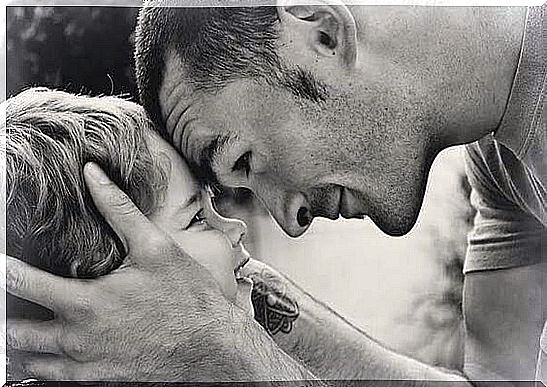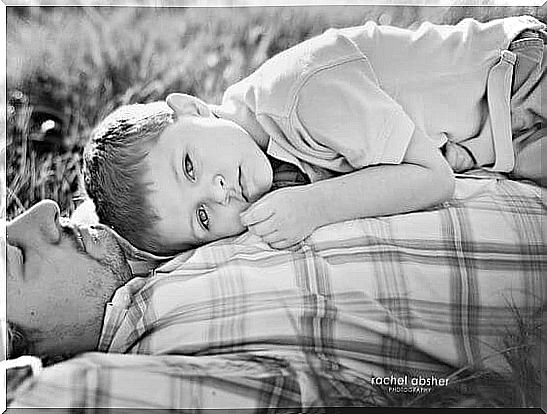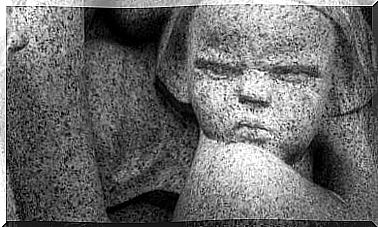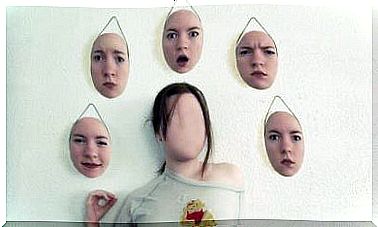A Father Can Play A Lot Of Roles, But Never Ceases To Be A Father

The role of the father has changed over the years and today it does not seem to be well defined. Before, it was clearer: fathers were the economic providers of the household and those who had the last word. They were the singing voice of authority but little care for their children and even less for domestic chores. And everything seemed to be in order.
In recent decades, the male figure has totally changed and with it of course, the father figure. However, there is a point where, both before and now, fathers feel deeply involved: the success of their children.
“Rule your house and you will know how much wood and rice cost, educate your children and you will know how much you owe your parents.”
-Oriental proverb-
Previously, fathers were concerned with forming honest and hardworking people who would turn into valiant citizens. Today, but based on this same logic, some fathers have decided to become sort of “managers” for their children. Not only do they want them to be good citizens, but they also want them to become better in a certain sector. Sport, for example.
We can see it in the stands of the weekend children’s tournaments. They are always there, between the banners, to guide the activity of their child so that he becomes the best. They get involved as long as they focus all of their offspring towards these successes and even distribute their affection based on those successes. These are fathers who project their fantasies of success onto their children and up to a point stop being fathers and become talented coaches of their children.

Direct and indirect pressure from the father
The male view of success is much more demanding and limited than the female view. This is why many fathers find it difficult to differentiate between educating a successful child and a happy child. For a good portion of them these two characteristics are synonymous and in good faith they focus their education towards success, especially if skills are involved.
These parents want to be proud of their children’s successes. Sometimes they cannot tell the difference between their own desire and the desire of their children. Children, in general, want to please these dads and learn to read their smiles and expressions of satisfaction when they get a medal, go faster, score a goal, or get 20 in math. May their father be proud of them gives them security. They therefore very easily comply with these approvals or reprobations.

This happens only if the child does not stand out in what the father expects and then a wave of indifference appears. Maybe he doesn’t complain directly to him, although it is very common. In any case, expressions of disillusionment are legion among fathers. And they often take a distance from children who disappoint them.
The father who has not finished educating himself
Fathers who fall into this type of behavior are actually children who seek to assert themselves. It is likely that they were victims of a similar upbringing: they had high expectations and perhaps they did not fully succeed in them. And if they were successful, they did so from difficult renouncements or great suffering.
Their children remind them of the child that they were too. They want to fix what has “failed” at home, which has not allowed them to be the “Messi” of the football team, the best of the class, or the richest entrepreneur. They feel in doubt and pass this lack on to their children. They do it subconsciously and with the best of intentions. They really believe that their desire is to allow their children to be better than themselves, to have a more successful life.

The problem with this whole well-established equation is that they exclude one crucial factor: genuine love. This love is the one who is able to respect processes, times and mistakes. The one who, too, accepts the other as he is, with the whole package: address, errors, successes and failures.
The love of the “manager” father can be very deep, but it does not cease to be selfish. A father is thus more worried about himself and his happiness than about the real well-being of his child. Above all, a father must provide a firm hand which will fill his child with confidence and which brings him a certain certainty: whatever the circumstances, he is a courageous person who deserves to be recognized as much for his successes as in any other time of life.
Also read:
Images by Brett Cole









